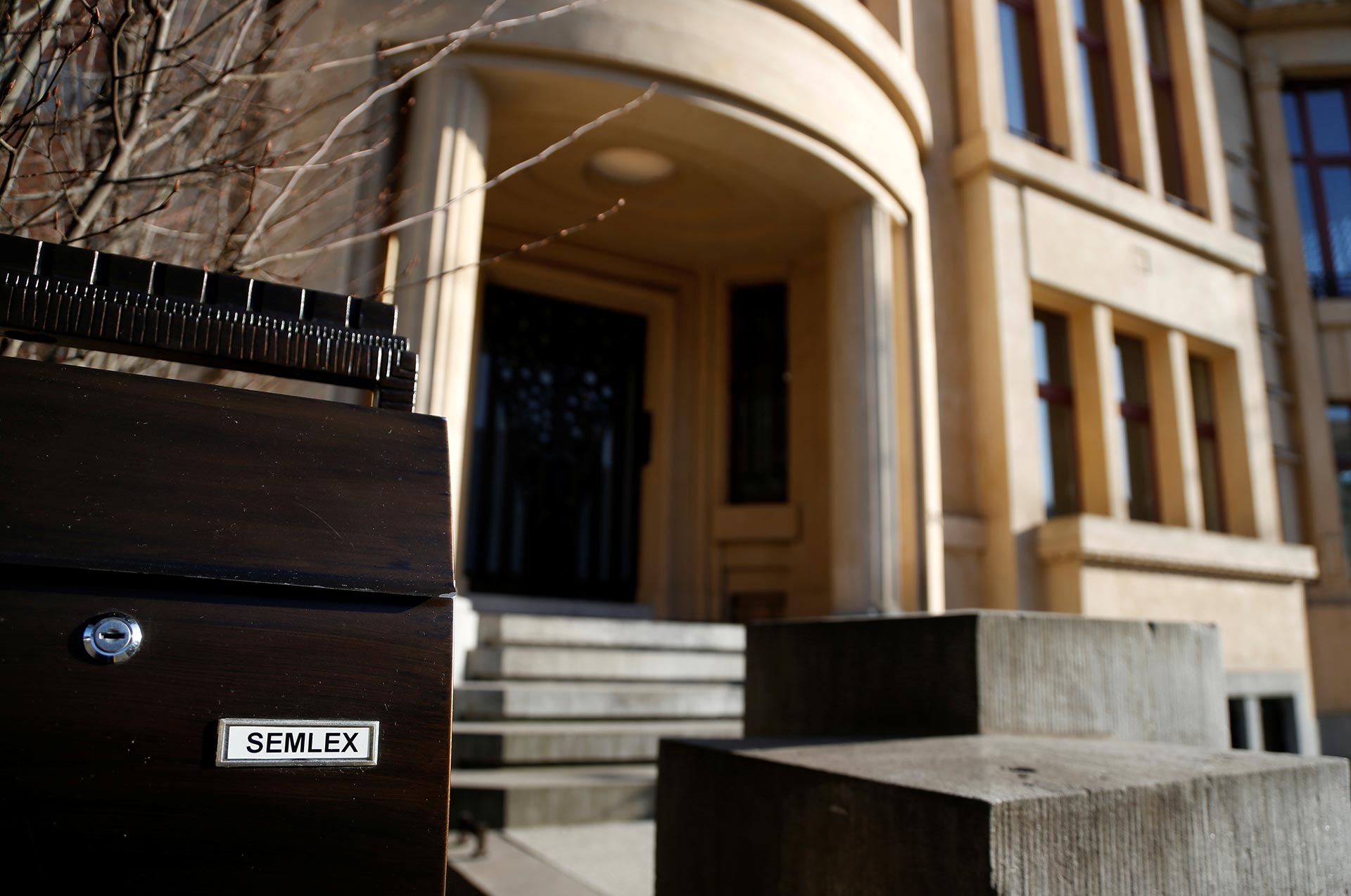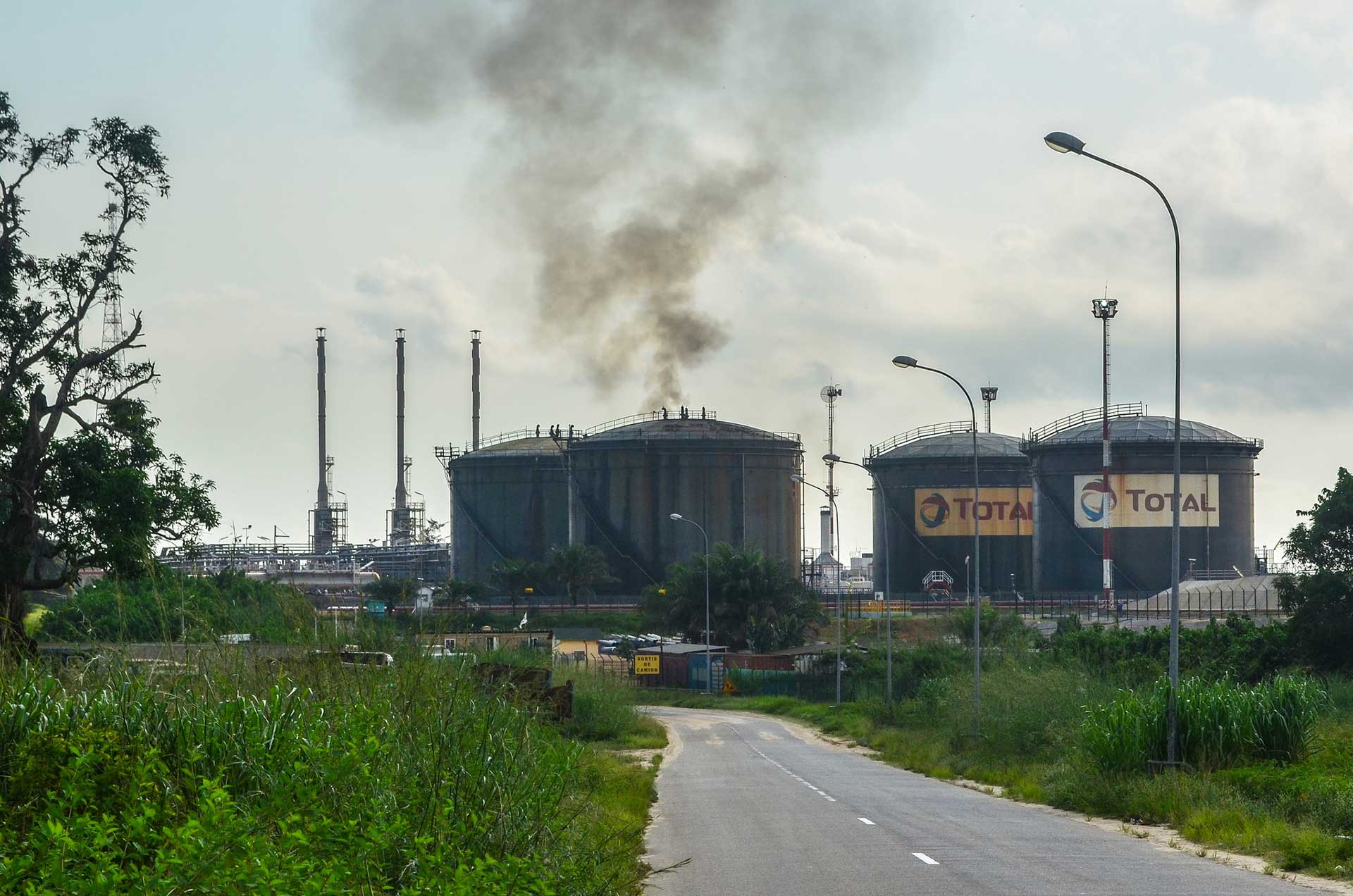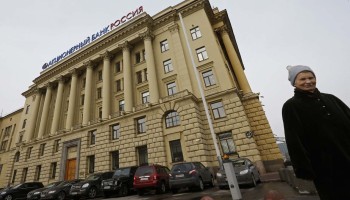In 2006, Swedish billionaire Torbjorn Tornqvist was searching for new source of crude oil.
As chief executive officer of Gunvor, a giant crude oil trader he had co-founded with Gennady Timchenko, an ally of Russian President Vladimir Putin, Tornqvist had reason to be concerned that the United States’ increasingly tense relations with Russia would end up cutting off the company’s main source of oil.
The Republic of Congo in Central Africa looked like a solution. Not to be confused with the larger Democratic Republic of the Congo next door, the country was poised to open the Moho-Bilondo oilfield, its first deepwater reserve.
To get a foothold there, Tornqvist turned to local Maxime Gandzion, a former executive at the French oil giant Total who had become a special adviser to Congolese President Denis Sassou-Nguesso.
Using that prominent position, he paved the way for a lucrative deal for Gunvor. Between September 2010 and June 2012, the company raked in about US$ 2.2 billion from 22 tankers of crude it was able to purchase from Congo. In 2011, more than 20 percent of the company’s global profits — $327.9 million — came straight from that impoverished tropical country.
The problem was that the whole operation violated Congolese law — the shipments were purchased without a required public tender. Moreover, they were only possible because of payments made to government officials derived from the oil revenues and the inflated loan fees Gunvor charged the Congolese state oil company, according to an analysis by Public Eye, an anti-corruption organization.
The proof lies in a series of leaked contracts, invoices, court records, emails and other documents uncovered by the journalists for the Organized Crime and Corruption Reporting Project (OCCRP) and the Belgian magazine Medor.
This wasn’t the first time Gandzion had worked for Tornqvist. Years before, he introduced Gunvor to Semlex, a Belgian biometric data company that would prove vital in what appeared to be a significant African oil deal in Cote d’Ivoire for the oil trader.
Semlex evolved into a crucial player in Gunvor’s African operations. The company’s role, according to its contract with Gunvor, was to help buy oil. How it did so was the problem.
Behind a veil of shell companies and offshore accounts, Semlex largely oversaw the payment of $48 million, after which Gunvor won favorable trade deals in three African countries, the reporters discovered.
Reporters for OCCRP, Medor and Reuters recently reported that Semlex’s activities across Africa have been tarred by corruption. Gunvor may have seen it as an ideal partner because of its African political contacts and its vast network of secretive offshore companies.
The payments were laundered through this network. The funds were transferred between Switzerland and Hong Kong as well as through Mauritius, Luxembourg and Monaco. To disguise the true relationship between Semlex and Gunvor, they were listed as shipping fees.
The documents show Gunvor’s middlemen including Gandzion used the Semlex-connected companies to move funds around. Gandzion and his son, Yoann, had previously done business with Semlex’s founder, Albert Karaziwan.
The elder Gandzion and Karaziwan did not respond to requests for comment.
Francois Koning of Janson Baugniet Associates, the law firm representing Semlex, sent journalists a press release from last December that actually responded to a different allegation. Gunvor denied allegations of wrongdoing on behalf of the company and its officials, including Tornqvist.
The Ivorian Introduction
It all began in the Ivory Coast in 2008. In March of that year, a contract for what looked like a one-year agreement was signed between Gunvor and Semlex’s branch in the country, called Semlex C.I.
Through Semlex, Gunvor sent payments of $7.6 million to officials close to President Laurent Gbagbo between 2010 and 2011.
Through Swiss and Belgian banks, including BSI Ltd and BNP Fortis, five payments were intended for three other state officials: Gbagbo’s uncle, Laurent Ottro, who headed the country’s refinery; Aubert Zohore, a presidential economic advisor; and Kassoum Fadika, then head of Petroci, the country’s petroleum company. Because of the political crisis which later developed in the country, it is not clear if the payments ever reached their intended recipients.
Reporters could find no legitimate business purpose for the payments.
Via email to OCCRP, Fadika denied receiving any payments. “I did not receive any money from any person from Gunvor in any regard. Aside from Gunvor, I have absolutely no knowledge of any of the organizations you are mentioning and I did not have any connections to any of them.”
The records indicate that after the payments were made, Gunvor was given access by Petroci, the Ivory Coast’s oil company, to more than 3.1 million barrels of the nation’s oil in preferential deals. Gunvor also provided for pre-payment of about $90 million worth of oil to the Ivorian regime under Gbagbo.
As would occur later in Congo, the money to pay officials was skimmed off the top of the oil shipments.
For example, invoices dated May 2, 2011, show Semlex received from Gunvor a $2 per barrel “profit sharing” fee that the contract says was for its help in negotiating for and exporting Ivorian oil transported on April 11 and April 13. The invoices list two shipments of oil transported on two vessels: the Glen Maye and Mare Aegeum. The oil originated in the Ivorian fields of Espoir and Baobab.
In this case, Semlex received more than $3 million for the two shipments totalling almost 1.6 million barrels, though the passport company had played no role in the extraction or transportation of the oil. Part of these funds were promptly routed to offshore bank accounts.
Bank wires, invoices, contracts, and email correspondence reveal a pattern. Gunvor transferred funds to Semlex CI, which then immediately paid out significant sums - some 70 percent of which were intended for public officials.
Meanwhile, Gunvor raked in the profits — and looked elsewhere in Africa to build on its success.
 Semlex Group’s headquarters in Brussels, Belgium, 2017. Credit: Francois Lenoir / Reuters
Semlex Group’s headquarters in Brussels, Belgium, 2017. Credit: Francois Lenoir / Reuters
Where the Oil Flows Free
Today, Congo has a national debt of more than $9.1 billion, of which about $2.3 billion is owed to commodity traders including Glencore and Trafigura.
Traders often use pre-financing deals — prepayment for unextracted oil — as a mechanism to loan money to cash-strapped governments, sometimes at disadvantageous terms to the states. They are then repaid with cheap multi-year access to oil, ultimately costing states lost profits in the long run.
In June 2010, Gunvor signed the first of two contracts with Congo’s National Petroleum Company (SNPC). This deal, and another signed in January 2011, provided $750 million in loans to the Congolese regime, which were partly financed by French bank BNP Paribas. The pre-payments were repaid based on the price of the oil shipments, according to a 2017 report on Gunvor’s activities in Congo published by Public Eye. Given the involvement of the state firm SNPC, the deal may have violated Congolese law, which requires oil marketing contracts to be subject to a public tender.
A shell company in Switzerland called SEF Finance was used to send SNPC’s management head Cedric Okiorina part of Gunvor’s prepayment for oil although there appears to be no legitimate business reason for doing so. Unusually, SNPC did not set a fixed price for its prepayment deal, allowing Gunvor to optimize its profits based on oil prices at the expense of the state.
In return, SEF Finance — in essence, a shell company which appeared to be used only for funneling payments -- was rewarded with a service fee of 2 to 3 percent. An invoice seen by OCCRP and Medor shows SEF did bill Semlex C.I for payments, referencing a contract between Gunvor and Semlex’s “joint venture”. The SNPC could not be reached for comment.
The pattern was repeated a number of times. Semlex made a large number of payments through its maze of offshore companies, apparently on behalf of Gunvor. In return, Gunvor received highly profitable contracts.
Often, Gunvor sent direct payments to Semlex C.I., which then paid Petrolia, a company linked to Gandzion. These payments, according to the court, paved the way for 22 oil shipments worth $100 million each, to reach the total of $2.2 billion.
Payments from Gunvor and its proxies were often described as consultancies and service fees. Just days before Gunvor signed its deal with SNPC in June 2010, it signed a separate contract with Petrolia, a Belize company where Gandzion was a director. (Petrolia was one of the two companies that owned Gandzion’s Prevail Energy, which already had shares in the Congo’s Mendo-Kundji-Bindi field).
An invoice seen by OCCRP, for example, shows $250,000 marked “Congo Petrolia” moving from Gunvor to an account controlled by Semlex’s founder, Karaziwan, as payment for Petrolia. Court documents show that in all, $10.83 million was moved through Petrolia bank accounts in Geneva.
Through Semlex and Gandzion, payments were then sent to Congolese President Sassou-Nguesso, his wife Antoinette Sassou-Nguesso, his son Denis Christel Sassou-Nguesso, his nephew Edgar Nguesso among other Congolese insiders including Abbas Haidara, then a powerful presidential advisor. Haidara denied any wrongdoing, saying he "had no direct or indirect knowledge of any Gunvor or Semlex cases."
President Sassou-Nguesso told media, “Congo is a sovereign state that has the legal standing to choose who it does business with, as all countries do, all of which is done in a thoroughly transparent and legal manner.”
Thierry Moungalla, a spokesperson for the Congolese government and Minister of Communication, told OCCRP there was no truth to the allegations and that legal action would be taken if the matter was reported.
A record of purchases
Yoann Gandzion frequently asked Semlex’s founder Karaziwan for money to buy luxury cars, rent property and give his children allowances, according to emails seen by OCCRP and Médor. The family received these payments through shell companies, including Daruneva — a company where documents list Karaziwan and Yoann Gandzion as partners.
Maxime and Yoann Gandzion did not respond to requests for comment.
Wire transfers seen by reporters show considerable amounts of money flowing from Gunvor to Semlex, such as more than $3.6 million on March 26, 2010.
For its pains, Gunvor made double the going rate per barrel in profit. The company is estimated to have made more than $110 million in profits.
Whether to the benefit of Gunvor or the Gandzions, Semlex’s patronage ate through Congo’s oil revenues. About 20 percent of profits from the 22 shipments Gunvor sold — amounting to around $22 million — went to the benefit of the Congo’s ruling family and key officials, documents show.
Each company in the network was connected. SEF Finance, for instance, was a shell company used to pay bribes to top SNPC management including Cedric Okiorina, the marketing director. Okiorina allegedly received $9.9 million through the company. A separate invoice seen by reporters described this as “consulting fees between Gunvor and Semlex.”
Côte d’Ivoire and the Republic of Congo were not the only places Semlex and Gandzion tried to open doors for Gunvor. In email correspondence related to a proposed $150 million oil-for-cash deal with the nearby Central African country of Gabon, a Gunvor representative told Semlex’s Karaziwan that 20 percent of each shipment could be used to pay off the loan.
Citing similar deals in Cote d’Ivoire, Angola and Congo, the Gunvor representative said the International Monetary Fund or the World Bank would count this debt as “prepayment” and not consider it public debt.
 An oil refinery in Djeno, on Congo's Atlantic coast, 2014. Credit: JB Dodane / Flickr
An oil refinery in Djeno, on Congo's Atlantic coast, 2014. Credit: JB Dodane / Flickr
“Master Vladimir”
Gunvor’s alleged ties to Russia’s president Putin have made it notorious. For a decade, rumors have circulated that co-founder Gennady Timchenko is financially connected to Putin. When Timchenko was placed under US sanctions in 2014 for these alleged links, his Gunvor co-founder Tornqvist bought out the Russian’s 43.5 percent stake in the company for at least $1 billion.
“Russian President Putin does not and never has had any investment in or ownership of Gunvor Group, beneficial or otherwise,” a Gunvor spokesman told OCCRP and Medor. “This rumor is entirely false, and evidence supporting this false claim has never been provided by anyone.”
However, documents and the transcript of a video reviewed by OCCRP and Médor do show a deep connection between Gunvor and Russia. In October 2011, at the same time as Gunvor aggressively pursued the purchase of oil tankers in the Congo, the Russian government signed a $1 billion memorandum of understanding with the Congolese government for the development of a pipeline and other agreements to work on hydroelectric projects.
These deals would involve Gunvor.
Transcripts of a video obtained by Switzerland-based Public Eye and shared with OCCRP and Médor show former Gunvor officials telling a relative of Congolese President Sassou-Nguesso that approval from “master Vladimir” would be solicited.
Questions emailed to the Russian presidency were not answered.
In another exchange, a Gunvor official boasted to Semlex’s founder Karaziwan of the company’s “very special links with Russia.”
“The support of a country that counts like Russia can be extremely profitable to the new [Congolese] authorities,” the Gunvor official wrote.
The Swiss Witness
Eventually, authorities came to suspect Gunvor was laundering money and bribing government officials overseas. Swiss prosecutors were suspicious of accounts held at Clariden Leu, a Zurich bank, that conducted more than $22 million of transactions in just a few months. In January 2012, police raided Gunvor’s Africa desk, seized internal communications, and launched criminal proceedings.
The investigation, on which the Swiss Attorney General’s Office declined to comment, has dragged on for years with few results.
Until last week. On Aug. 28, a former Gunvor oil trader identified only as “PC” sat in an austere Swiss courtroom clutching a bag. PC pled guilty to bribing public officials to secure oil cargoes from the Republic of Congo and Ivory Coast. He received an 18-month suspended sentence and was ordered to pay legal costs of 33,000 Swiss francs ($ 33,850.)
PC’s collaboration with Swiss prosecutors puts Tornqvist and other company officials at risk of prison and steep fines. His deal opens the door for these other people in the company to be indicted, his attorneys, Delphine Jobin and Matteo Pedrazzini, told media in a statement.
Gunvor itself could face penalties because Gandzion was a Congolese public official. This means the company violated Article 322 of the Swiss Criminal Code that prohibit private companies from giving public officials money. (The company is currently under investigation under Article 102, which charges companies with organizational corruption and can be fined up to 5 million Swiss francs (more than $5.1 million).
Gunvor has portrayed PC, a Belgian citizen, as a rogue employee out for personal gain. “He unlawfully directed funds to himself and another individual,” a spokesman said. “Gunvor wholly rejects the possibility of a conscious and desired involvement of any other employee or executive.”
But court records show that Tornqvist personally approved Gandzion’s role as an intermediary. Reporters for OCCRP and Medor have obtained documents detailing payments intended for Congo’s president, as well as invoices to that effect.
On several invoices, the signatures of some Gunvor officials, including Timothy Legge, a director at the time; Jose Miguel Orti, who is now retiring as head of crude oil; and Thierry Jacot, a risk manager, can be seen below PC’s.
Update: Abbas Haidara could not be reached for comment ahead of this story's publication. However, over a year later he reached out to OCCRP to deny any wrongdoing. The story has been amended to reflect his response.
Additional reporting by Marc Guéniat and Agathe Duparc
This story is part of the Global Anti-Corruption Consortium, a partnership between OCCRP and Transparency International. For more information, click here.
This article was produced with journalists from Medor.







